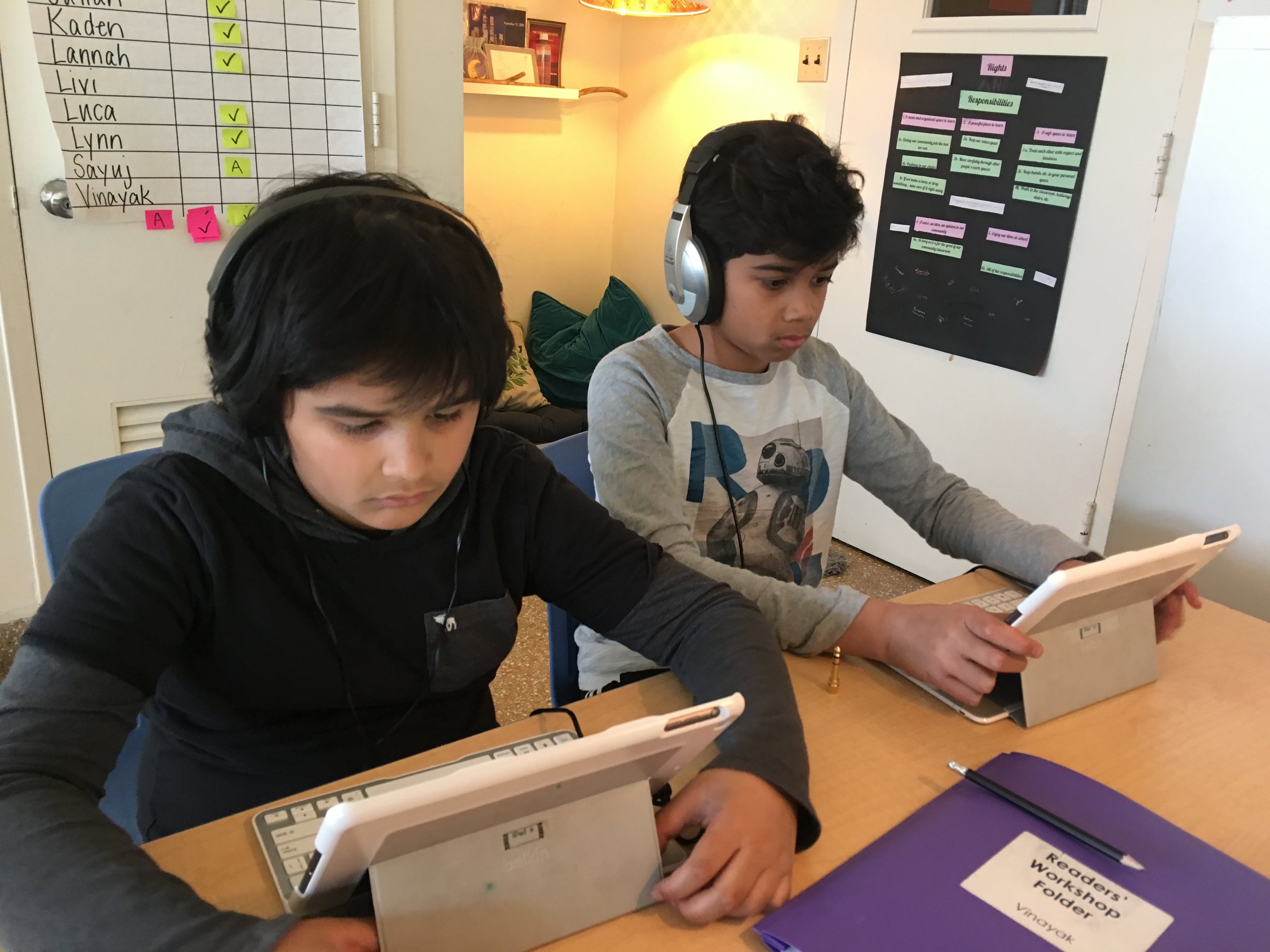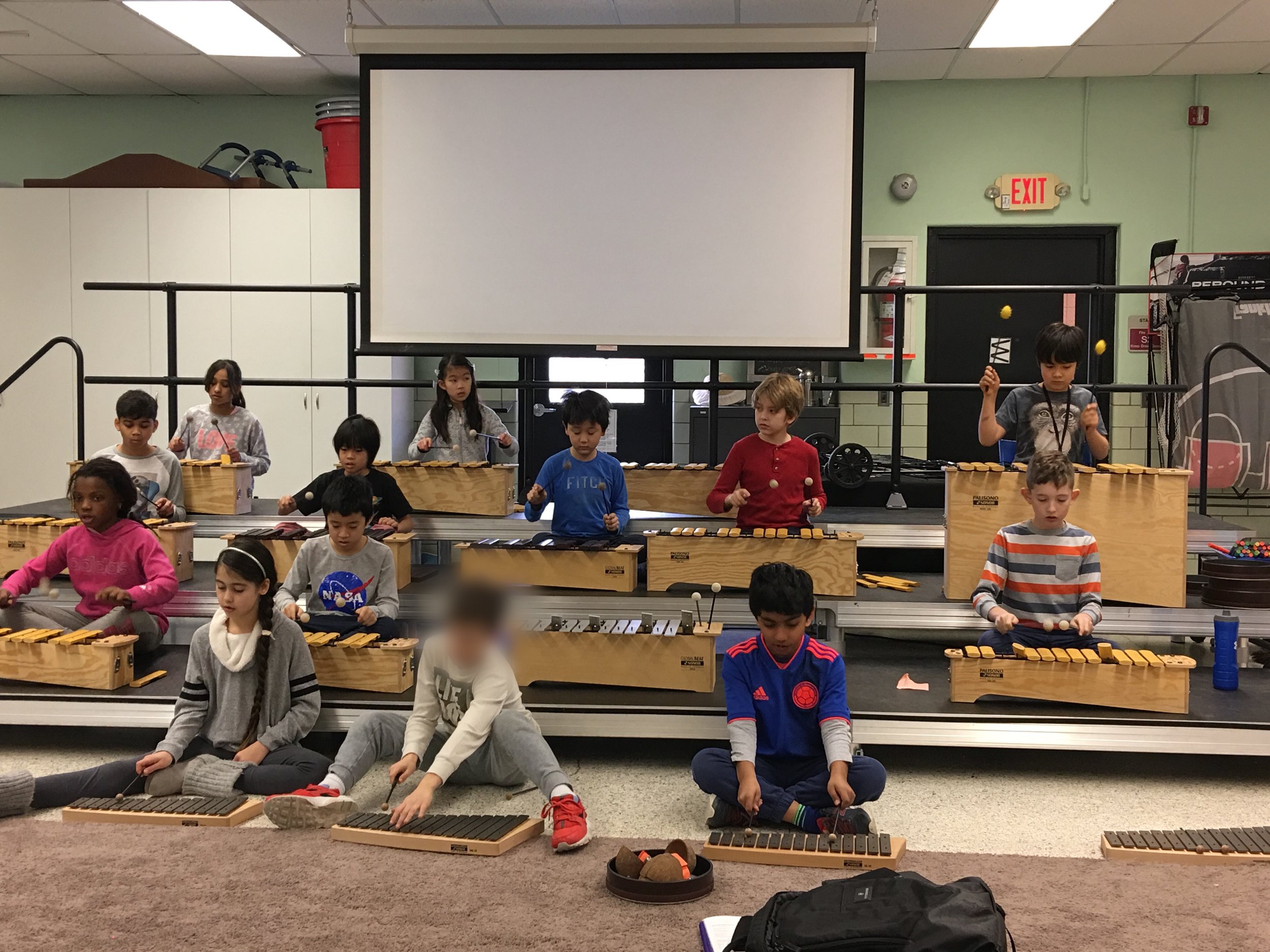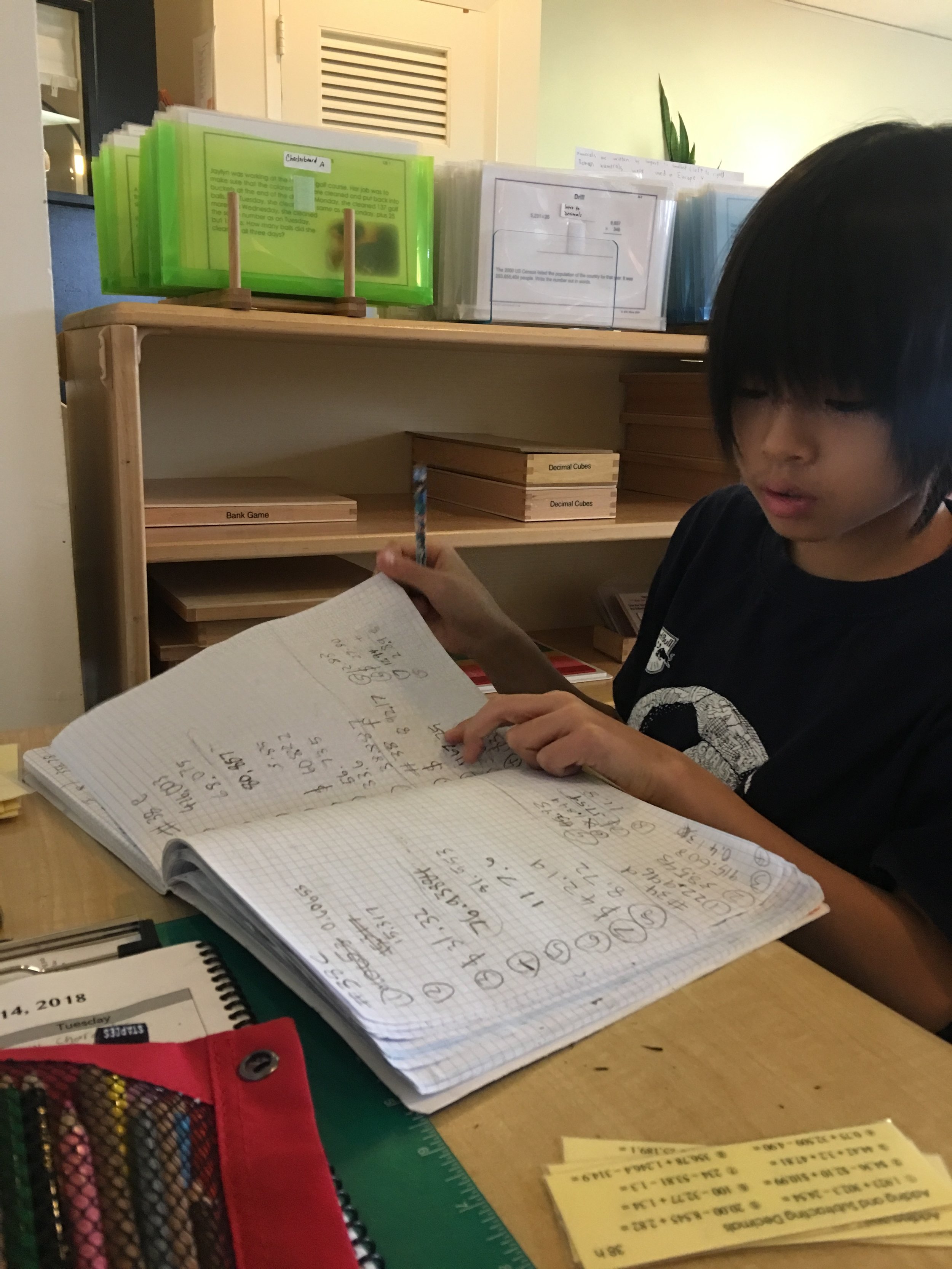// Curriculum Update: Week of Feb. 18 //
This week, students have been learning about idioms and illustrating idioms. They have also been continuing their research about their ancient civilization. They have been working on their note-taking skills by jotting down information on the daily life of the people who lived during this time. Students have also begun taking their notes and “writing long” about their notes in Writers’ Workshop. In Science, students are creating their own mushroom field guide based on their favorite mushrooms they have learned about over the last few weeks.
// Week of February 11 ❤️ //













This week...
Students have been refining their research skills in History this week. They learned to find information in book sources, how to take notes, and how to track sources by compiling a list as they go. Currently, they are studying the geography and government structure of their chosen civilization. Students will learn how to use their notes to write a research report. In Readers’. Workshop, students learned about archetypes, and are working on identifying mythical patterns in contemporary literature and film. In Science, students are extending their knowledge of fungi by studying the classification and life cycle of mushrooms.
// Week of Feb 4 //



// Curriculum Update: Week of Jan 28 //
This week, students learned that several ancient civilizations existed at the same time as Mesopotamia, including Persia, Egypt, China, India, Greece, and Rome. Over the next few weeks, students will be choosing a civilization to research and study independently. In Science, students are studying fungi, including its classification and different types of fungi. In Readers’ Workshop, students are learning about the hero’s journey as defined by Joseph Campbell, and are looking at how the same patterns and archetypes emerge in many familiar stories and myths. In Writers’ Workshop, students shared their memoirs in a publishing gathering with Orion and Perseus Rooms. They had a chance to read one another’s work and comment on their stories.
// Week of January 28 //











// Week of January 21 //
Students spent time this week analyzing primary source documents based on the life of Martin Luther King, Jr., and wrote about what they found out. They also learned about producers, consumers, and decomposers in the food chain, and created their own edible “living soil.” In Readers’ Workshop, we began a unit on myths and folktales to connect to our ancient civilization studies. Students edited their Writers’ Workshop pieces, independently and then with the help of a friend, in preparation for our publishing event among friends next week.
// Week of Martin Luther King Day //












// Curriculum Update: Week of Jan. 14 //
This week, the 5th level students had the opportunity to help out at the Atrium, a local retirement community. Students played games with the residents, such as BINGO and card games. The 4th level students will visit the Atrium in the upcoming weeks. In History, we studied the difference between primary and secondary source documents which will help them conduct their own research writing this spring. In Science, students learned about the work of decomposers such as mushrooms and worms. In Writers’ Workshop, we are getting closer to publishing our memoirs by integrating final revisions and adding a conclusion.
// Enjoy Photos from the week of Jan. 14 //














// Curriculum Update: Week of Jan 7 //
This week, students learned the myth of Gilgamesh in History and reflected on why the story was important to ancient Mesopotamians. We also had a chance to explore the art and artifacts of that civilization during our field trip to the Metropolitan Museum of Art. In Science, students have been working on creating awareness campaigns to help people understand how soil is being depleted and what we can do to reverse this action and protect our Earth. Students have also begun typing their memoir pieces in Writers’ Workshop, and continue to add detail and revise their writing to make their ideas clear and to create a “movie” in the readers’ minds.
// Week of January 7 //










// Curriculum Update, New Year! //
We are excited to see everyone back in the new year! We spent our first day back as a community sharing our adventures from winter break over a snack of cinnamon bread and orange juice. We also reunited with Orion Room for community/team-building games. Students reflected on their goals for themselves in 2019 during journal writing. They had new lessons about Word Roots in Language, using descriptive detail in Writers’ Workshop, and soil conservation in Science.
// HAPPY NEW YEAR! //



// Hibernation Week: Curriculum Update //
This week, students made greeting cards for residents of the Atrium, which is a local retirement community for the elderly. They painted cards with watercolor, then wrote letters with wishes for the new year. The Upper Elementary music ensemble rehearsed for Wednesday’s Night of the Arts with Mr. Sebastian throughout the week. On Thursday, we came together for a potluck shared by both Perseus and Orion Rooms, and had a ceremony in which we reflected on our hopes for the new year as part of our winter solstice celebration. The week ended with our annual Hibernation Day, in which students wore pajamas and spent a cozy afternoon watching a movie together. We wish all of our families a wonderful, relaxing winter break. See you in 2019! :)
// Hibernation Week //








// Curriculum Update: First Week in December //
In Upper Elementary, the winter solstice is a time for us to turn within and find an appreciation for nature and the quiet of the darkest day of the year. Students learned about how the Earth’s position results in the solstice, and how ancient cultures celebrated this day with rituals.
We spent time painting watercolor cards for residents of the Atrium, a local retirement community, which will be delivered before the winter break.
In Readers’ Workshop, students met in small groups to share their notes about what they have found out about characters in The Westing Game. They will continue their note-taking in upcoming weeks to narrow down the suspect of Sam Westing’s murder in this mystery novel. In Writers’ Workshop, students have been meeting with a teacher to help shape the trajectory of their memoirs.
In History, many discussions have arisen around social justice in response to students’ reading about Hammurabi’s code. Students have talked about whether they agree or disagree with the punishments doled out for crimes in ancient Mesopotamia, and have come with alternative consequences they deem more fair or appropriate.
// Photos: First week of December! //














// Week of Nov. 26: Curriculum Update //
This week, students began a new unit in Science about soil composition. They will be collecting soil samples in Jersey City (and may bring in samples from other place they might visit on the weekend). Students will then use water to break down and identify the soil’s components. In History, students had a lesson on government in Mesopotamia, including Hammurabi’s code. They will be studying the social classes in Mesopotamia and comparing/contrasting forms of government, including democracy and theocracy. In Language, we have begun an on-going study of Word Roots. The study of Greek and Latin roots will help students grow their vocabulary and identify the meaning of unknown words using logical reasoning. In Readers’ Workshop, students continue to share their theories about which character murdered Sam Westing in The Westing Game. In Writers’ Workshop, our writing process is in full-swing. Students have developed an idea about their lives to introduce their memoir, and are now developing a story or stories that show how this idea is true.

